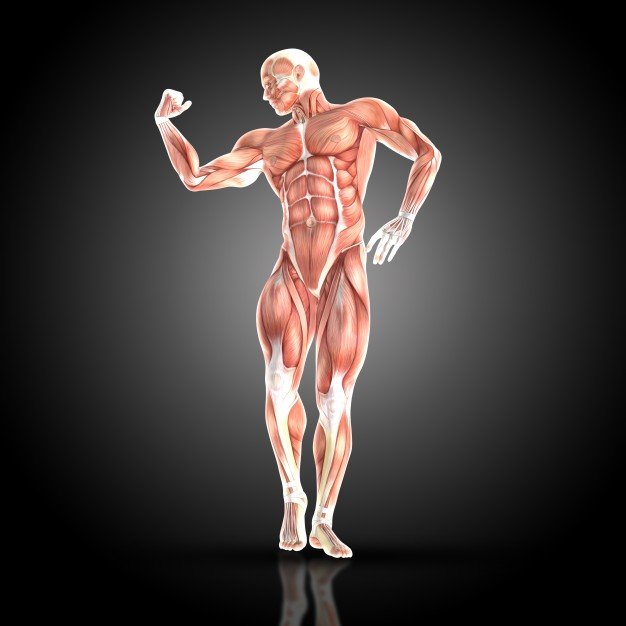Hello!
For a successful workout it is good to know the reactions that occur at the level of the muscles trained.

source:freepik.com
The fundamental energy of the cell is represented by ATP (adonezine triphosphate) a compound composed of Adenine, Riboza and 3 phosphate groups; to create an enzyme (ATP), the phosphate molecule (P) is divide by creating energy and ADP (adenosine phosphate).
ATP + H20 = ADP + (H +) + P + Available energy
The contracting of all the muscle cells is accomplished by transforming the chemical energy into mechanical energy.
The body has 3 energy systems that can create the ATP:
- Aerobic mechanism - Oxidative phosphorylation in the mitochondria, having as energy source carbohydrates and lipids oxidized by oxygen in the air, average action time from 2-3 minutes to several hours.
- Anaerobic alactacid mechanism1 - ATP-CP system, having as energy source phosphate ATP-CP and O2 from myoglobin, average action time from 0 1a to 30 seconds.
- Anaerobic anaerobic mechanism - anaerobic glycolysis, having an energy source of glycogen through anaerobic glycolysis with lactic acid formation, average action time 5-6 minutes.
Biochemical composition of the muscle
Muscles contain 80% water and 20% organic and inorganic solids. The most important organic substances are proteins that are located in miofibrils and sarcoplasm. Proteins from myofibrils form sarcomas. As with other cells, inorganic substances are made up of mineral salts: chlorides, bicarbonates, sulfates, potassium, calcium, magnesium.
Stay fit and healthy!
Have a nice day :)
If you liked it Upvote and Follow me!@viorel